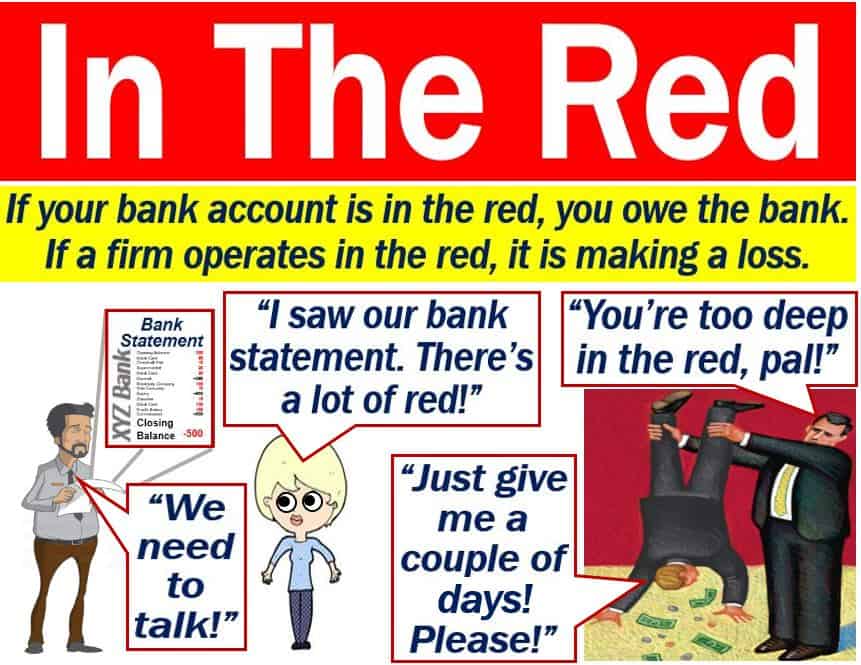If you are in the red, it means that you have spent more than you have in your account. In other words, your account is in negative numbers, i.e., you owe money. People and companies whose accounts appear in red numbers have less than zero in their account.
Historically, banks and accountants would write negative (minus) numbers in red and positive numbers in black.
Therefore if your account was ‘in the black,’ it meant that you were in credit. However, if your account was ‘in the red,’ it meant that you owed money to your bank or whoever the account was with.
Today, bank statements do not follow the ‘red’ and ‘black’ print so closely.

Operating in the red
Companies
If a business is operating in the red, it means it is losing money. In other words, it is not making a profit.
Let’s suppose XYZ Inc. made a loss of $18 million last year and a loss of $9 million two years ago.
However, it made a profit of $3 million three years ago.
We could say that XYZ has been operating in the red for the last two years.
Trade balance
Some journalists use the term when writing about international trade. Specifically, when they are writing about a country’s imports and exports, i.e., its international trading performance.
If I write: “The USA has been trading in the red for the past few decades,” I mean that it has been running an annual trade deficit.
When a country imports more than it exports, it has a trade deficit. A trade deficit is the opposite of a trade surplus.
The term may also refer to a budget deficit. In other words, that the government has been spending more than it receives in taxes.
